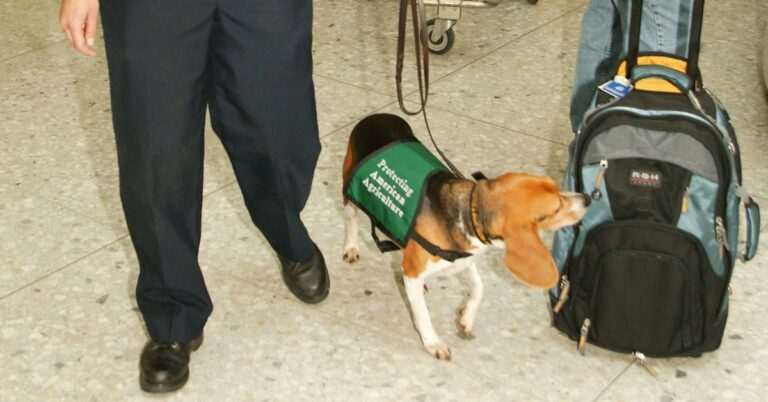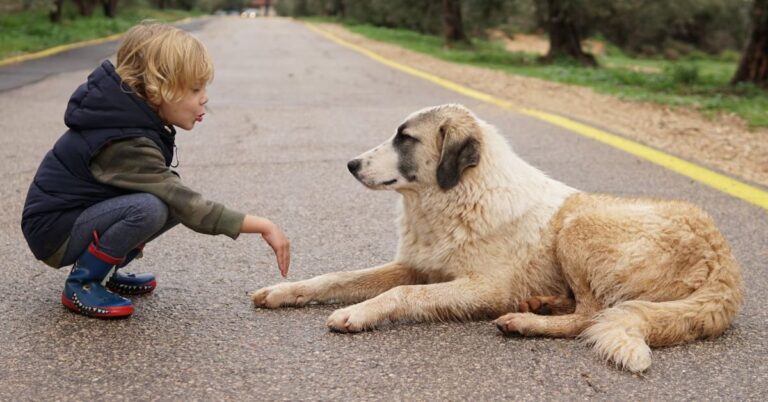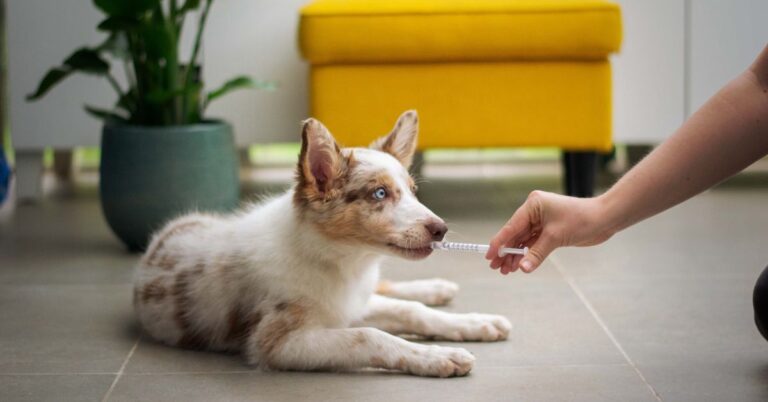15 Things You Didn’t Know About Rottweilers

Rottweilers tend to come with a reputation—and it’s not always a fair one. Often seen as intimidating or overly aggressive, these powerful dogs are frequently misunderstood. But ask any dedicated Rottie owner, and you’ll hear a different story: one of goofy behavior, fierce loyalty, deep emotional sensitivity, and centuries of working alongside humans. Here are 15 surprising truths that go way beyond the surface.
They’re ancient Roman descendants.
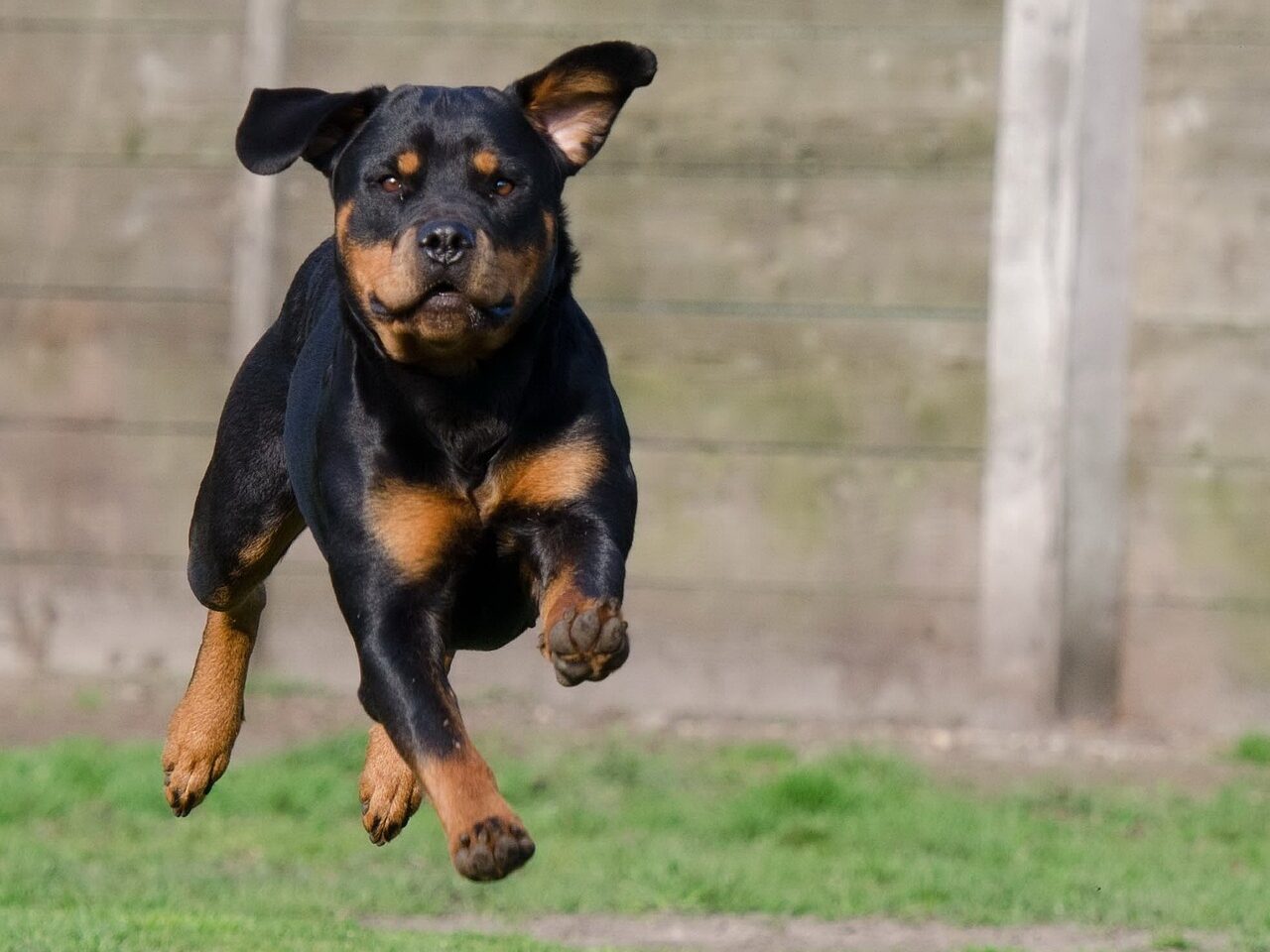
The Rottweiler’s ancestry dates back over 2,000 years to the mighty Roman Empire. Roman legions marched with herds of livestock, and they needed tough, intelligent dogs to keep the animals in line across long, grueling journeys. These early drover dogs were the great-great-grandparents of today’s Rottweilers. After the fall of Rome, some of these dogs settled in what’s now Germany, where they continued their herding legacy—and gradually became the Rottweilers we know today.
They were once known as “butcher’s dogs.”

In the town of Rottweil, Germany, Rottweilers became indispensable to butchers. Not only did they help herd cattle to market, but they also pulled heavy carts loaded with meat and protected their owner’s earnings. Butchers would often tie money bags around their dogs’ necks for safekeeping—because who’s going to mess with that? The breed’s loyalty, strength, and territorial instincts made them the perfect business partne with paws.
They’re actually incredibly affectionate.
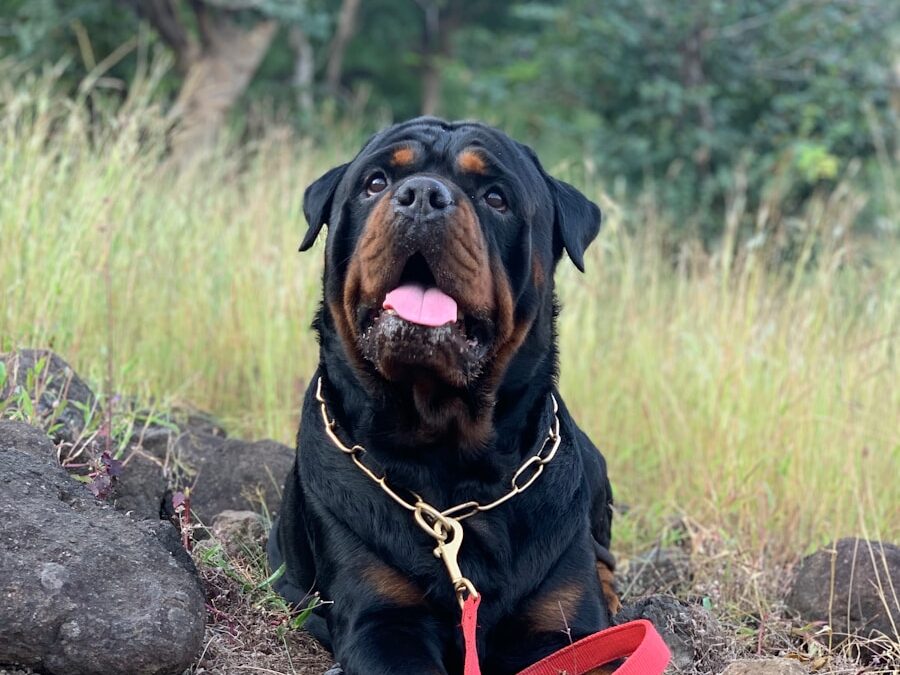
While their appearance might scream “guard dog,” Rottweilers are incredibly tender with those they trust. These dogs form deep emotional bonds with their families and are known to follow their humans around the house like shadows. Many Rottie owners will tell you theirs is basically a 100-pound lap dog who thinks it’s still a puppy. Behind that serious face is a whole lot of mush.
They’re natural protectors—but not naturally aggressive.

Rottweilers will protect their home and people—but they’re not reckless or mean by default. A well-socialized Rottweiler is calm, confident, and watchful—not constantly barking or lunging. Their protectiveness is measured and intentional, not chaotic. When raised with love and boundaries, they’re level-headed, not hair-trigger. It’s untrained or neglected dogs—not the breed—that create problems.
They’re working dogs through and through.

This is not a breed that thrives on boredom. Rottweilers need mental and physical challenges to stay balanced and content. Whether it’s obedience training, agility work, nose games, or even pulling a cart for fun, they love having a purpose. Without stimulation, a Rottie can become frustrated or destructive. But give them a job, and they’re all business—with a tail wag.
They’re incredibly smart (but sometimes stubborn).
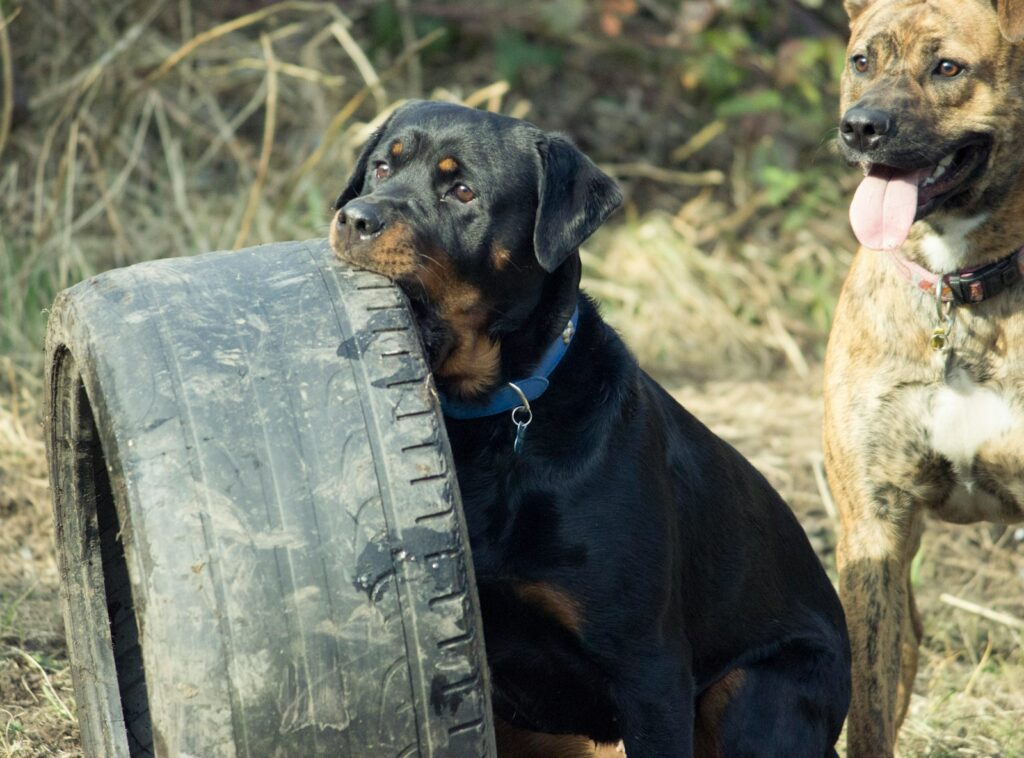
Rottweilers are clever, observant, and fast learners. But don’t expect them to be pushovers. Their intelligence comes with a side of independent thinking—so if they don’t see the point of a command, they might ignore it entirely. That’s not defiance. It’s discernment. They respond best to confident, consistent trainers who use positive reinforcement. Harsh discipline only backfires with a dog this self-aware.
They have a goofy side you don’t expect.

Spend time with a Rottie behind closed doors, and you’ll see a whole other dog. They roll on their backs for belly rubs, carry toys around like prized possessions, and flop dramatically onto furniture like four-legged teenagers. Many Rottweilers are known for making “talking” noises—grumbles, groans, even sighs—when they want attention. It’s hard to stay intimidated when they’re dragging a squeaky duck around the house like it’s their baby.
They love structure and routine.

Rottweilers like to know what’s going on. They do best in homes where expectations are clear, rules are consistent, and people follow through. If the rules change daily or the leadership is inconsistent, a Rottweiler might try to take over—or simply get anxious. They’re not bossy by nature, but they do need to know who’s in charge (and they really appreciate order).
They’re prone to leaning—literally.
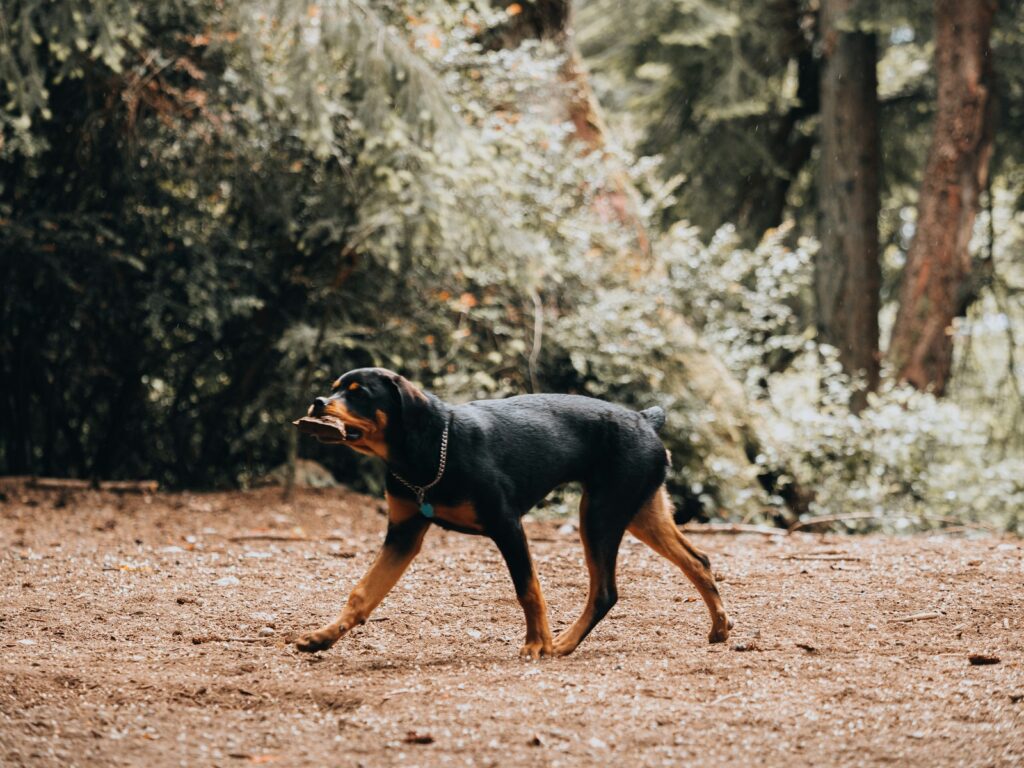
If a Rottie loves you, prepare to be leaned on. They press their body against your leg as a form of closeness and reassurance—it’s like their version of a hug. It’s incredibly sweet, but also… heavy. With their size and strength, that lean can shift your center of gravity in an instant. Still, it’s one of their most endearing quirks—total trust in physical form.
Their tails were traditionally docked for work—not looks.

Tail docking began back when Rottweilers were pulling carts or herding livestock—environments where tails could be injured. Over time, it became part of the breed standard in some countries. But in many places today, docking is banned or discouraged unless medically necessary. Natural tails give more insight into their mood and allow for even more joyful wagging. And yes, they still look majestic.
They’re not ideal for absentee owners.
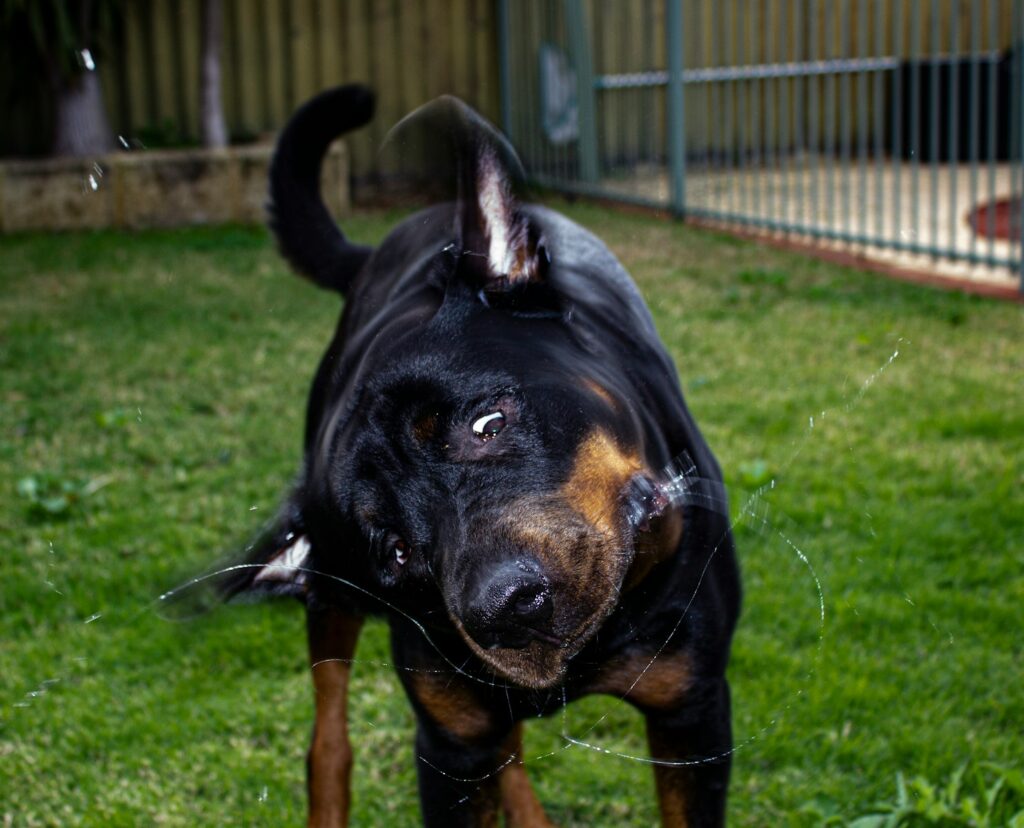
This is not a set-it-and-forget-it breed. Rottweilers need engagement, structure, and human connection. If they’re left alone for long stretches day after day, they may develop anxiety, bark excessively, or become destructive. They want to be part of the family—not just a yard ornament or a “guard dog.” A Rottweiler raised with love and attention is a dream. One left to their own devices? A recipe for trouble.
They’re great with kids—when raised properly.

Rottweilers can be fantastic with children, especially when raised alongside them. They’re often gentle, protective, and patient with their tiny humans. However, supervision is always key—especially given the dog’s strength and the unpredictability of small children. As with any large breed, mutual respect needs to be taught on both ends of the leash.
They excel in dog sports.

Don’t let their bulk fool you—Rottweilers can fly. They’re surprisingly agile for their size and thrive in structured physical activities. Obedience competitions, tracking trials, protection work (like Schutzhund), and agility courses are all places where Rotties shine. Training for sport is also one of the best ways to bond with your Rottie, as it taps into their natural drive and gives them a clear purpose.
They’re sensitive souls.

For all their muscle and might, Rottweilers are emotionally sensitive. They pick up on your energy and mood, and they’re deeply affected by tension or harsh treatment. Yelling or heavy-handed discipline can leave them confused or hurt—and it can damage the trust they place in you. What they need is fairness, consistency, and leadership they can rely on. Treat them with respect, and you’ll get loyalty that runs deeper than you imagined.
They’re not for everyone—but for the right person, they’re everything.

Owning a Rottweiler comes with responsibility. You need to provide guidance, socialization, exercise, and clear leadership. They’re not plug-and-play pets. But for someone who can meet their needs, a Rottie will give back tenfold. They’re courageous, funny, emotionally connected, and utterly devoted. If you earn their trust, they’ll never let you down—and they’ll probably steal your heart in the process.
